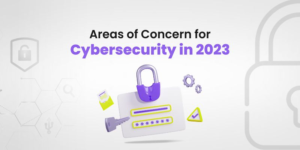Because of advancements in technology, cybersecurity is now the prime concern for all types of organizations. In order to properly protect their data, firms must constantly evaluate security flaws and keep a vigilant eye out for dangers. In order to solve innate security flaws before hackers can take advantage of them, robust, proactive, and forward-thinking solutions are urgently needed given the rise in cyberattacks.
The term ‘cybersecurity’ describes the procedures and tools used to guard against unauthorized access to, use of, disclosure of, interruption of, alteration of, and destruction of networks, gadgets, and sensitive data. This involves safeguarding data’s privacy, integrity, and availability as well as defending against cyberattacks like hacking and viruses.
Are you someone keen to know about Cyber security? Here is our Cyber security Course just for you.
Cybersecurity entails a mix of managerial and physical controls, including staff development and incident response plans, as well as technical safeguards like firewalls and encryption. Secure sensitive data, ensuring the availability of vital systems, and shielding people from damage are the three fundamental objectives of cybersecurity.
In terms of cybersecurity, some potential issues for 2023 include:
- Attacks by ransomware are increasing in frequency and sophistication
- The usage of AI and machine learning in cyberattacks has increased
- IoT’s (Internet of Things) continued development and the threat of attacks using unsecured devices
- Using quantum computing to decrypt data
- Attacks on the supply chain, in which hackers target businesses that supply services and software to certain other enterprises
- Attacks including spoofing and social engineering have become increasingly specialized and individualized
Let’s get to the details of the areas that need concern in 2023.
Supply Chain attacks
Organizations should be concerned about supply chain threats in 2023 because they have the potential to expose confidential data or cause operational disruptions. These kinds of assaults entail breaking into a company’s or organization’s supply chain in order to access internal systems or implant malware or other harmful software. This may be accomplished in a number of ways, including hacking into a supplier’s network, taking advantage of software or hardware flaws, or playing with supply chain logistics.
Nation-State Assaults
In 2023, nation-state assaults will continue to be a problem since they may be very well-funded, very sophisticated, and frequently target vital infrastructure, governmental institutions, and major enterprises. Attacks of this nature may have serious repercussions, including the loss of confidential data and consequent operation interruption.
Due to the complex techniques they frequently employ to avoid detection, nation-state assaults can be challenging to identify and fight against. Organizations ought to be aware of the dangers and take precautions to safeguard themselves, including putting in place robust security measures, keeping an eye out for unusual behavior, and educating staff on how to identify and respond to possible nation-state assaults.
IoT Attacks or 5g Attacks
In 2023, attacks on the 5G and IoT (Internet of Things) infrastructure are a threat. In recent years, the use of IoT devices with 5G networks has increased, and this trend is anticipated to continue. However, because of their growing connection and the volume of sensitive data they are gathering and transmitting, these gadgets and systems have also grown more appealing as targets for attackers.
Attacks against IoT/5G infrastructure can be utilized to obstruct business processes, steal confidential data, or launch additional cyberattacks. Businesses should be aware of the threats and take precautions to safeguard themselves by putting in place security measures including routine security upgrades, monitoring for suspicious activities, and putting in place secure settings for IoT devices and 5G networks.
Cybersecurity in 2023
Cybersecurity is anticipated to be a top concern for all types of businesses and in all sectors in 2023. The danger landscape is changing and getting more complicated as technology advances. The following are some examples of the kind of cyber threats that organizations will be required to be diligent about avoiding:
- Advanced persistent threats (APTs) are targeted assaults carried out by nation-states, criminal gangs, or other organizations with the intention of stealing confidential data or impeding business operations.
- Malware that encrypts a user’s data and demands money in return for the decryption key is known as ransomware.
- Social engineering and phishing are two types of assaults that utilize misleading methods to coerce victims into disclosing personal information or downloading malware onto their computers.
- Security of the cloud: As more businesses shift their activities to the cloud, they will be required to assure that existing cloud environments are safe and that confidential information is shielded.
- IoT security: Since this number of connected devices increases, businesses will need to make sure that these gadgets are safe and don’t compromise the organization’s overall security.
- 5G security: As 5G networks are implemented, businesses will need to make sure that they are safe from assaults and that the devices connecting to them are secure.
To guard against these and other cyber risks, organizations will need to put in place strong security measures. This may entail putting in place security controls like firewalls, intrusion detection, and prevention systems, and endpoint protection in addition to doing routine security audits, educating staff members on cybersecurity best practices, and establishing incident response plans.
Need for Cybersecurity
As more and more businesses rely on technology to do business, cybersecurity has grown in importance in recent years. Cyber dangers are getting more advanced and prevalent, and they may significantly affect businesses of all sizes and in all sectors.
The following are some possible outcomes of a cyberattack:
- Information loss: Cybercriminals are capable of stealing sensitive information, including financial information, personal information, and intellectual property.
- Operations disruption: Cyberattacks may knock systems offline, disrupting corporate operations and costing money.
- Reputational damage: A cyber assault may harm an organization’s standing and cause clients and business partners to lose faith in it.
- Violations of compliance: Some cyberattacks may result in violations of compliance, which may result in fines and penalties.
Given these possible repercussions, it is critical that businesses take cybersecurity seriously and put in place strong security measures to guard against cyber attacks. This may entail putting in place security controls like firewalls, intrusion detection and prevention systems, and endpoint protection in addition to doing routine security audits, educating staff members on cybersecurity best practices, and establishing incident response plans.
Cybersecurity is becoming a business problem as well as an IT one in the current digital era. Organizations should constantly evaluate and upgrade their security procedures to remain ahead of the always-emerging cyber threats. Cybersecurity should be seen as an ongoing process rather than a one-time occurrence.







